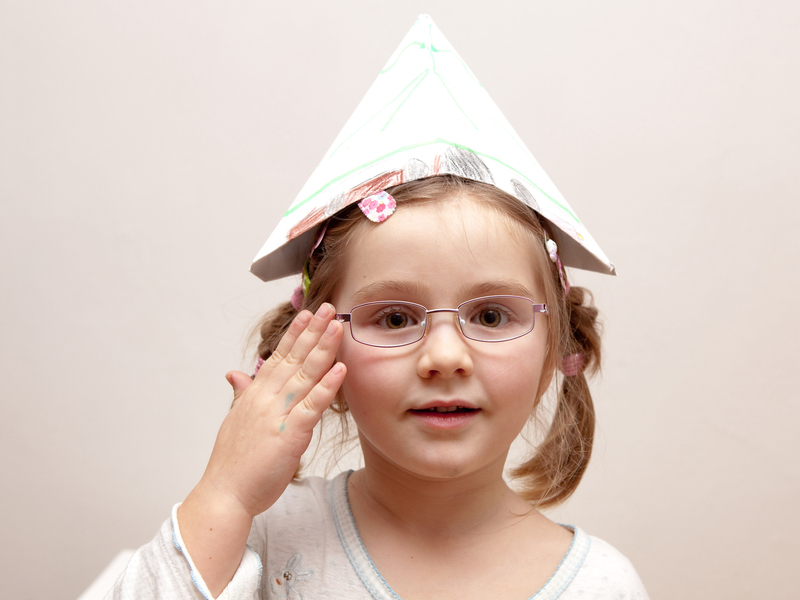Recycling for Kids: Turning Lessons into Adventures
Helping children understand environmental responsibility can be fun, interactive, and impactful. When we approach recycling for kids as a series of exciting adventures, we lay the foundation for lifelong eco-friendly habits. This article explores creative strategies to engage children in recycling, offering tips, activities, and inspiring stories that make environmental stewardship an enjoyable part of childhood.

Why Is Recycling Important for Kids?
Recycling is more than just sorting waste; it is about nurturing respect for our planet. Teaching children how and why to recycle helps them develop a sense of responsibility. When children learn the value of keeping our world clean, they become empowered to make sustainable decisions as they grow.
- Protects natural resources: Recycling reduces the need to extract raw materials.
- Reduces landfill waste: Diverting recyclables decreases the strain on landfill sites.
- Saves energy: Recycled materials often require less energy to process than new materials.
- Fosters environmental awareness: Kids become mindful of the impact of their actions.
Recycling Adventures Make Learning Memorable
The most effective way to teach kids about recycling is to transform lessons into adventures. Hands-on experiences, storytelling, games, and challenges ignite curiosity and excitement, making the concept of recycling tangible and memorable. As children embark on these activities, they learn to associate recycling for kids with fun and discovery.
What Is Recycling? Explaining the Basics to Kids
Recycling involves collecting used materials--like paper, plastics, glass, and metals--and turning them into new products. When explaining recycling for children, use simple language and relatable examples. Here's an effective way to introduce the concept:
- Show and tell: Hold up items and ask if kids think they are trash or can be recycled.
- Storytime: Share stories of how a plastic bottle might become a new toy or t-shirt after being recycled.
- Interactive play: Set up pretend play recycling stations with boxes labeled "Paper," "Plastic," and "Metal."
Creative Recycling Activities for Kids
1. Explorer's Recycling Scavenger Hunt
Turn your home, classroom, or neighborhood into an eco-exploration zone! Make a list of common recyclables (e.g., newspapers, plastic bottles, cans) and provide each child with a bag. Send them on a mission to find, collect, and sort items into the correct recycling bins. Award points for correct sorting and creative finds.
2. DIY Recycled Art Projects
Art encourages creativity and reimagines waste as treasure. Gather recyclable materials and challenge kids to create:
- Robots from boxes and cans
- Bird feeders from plastic bottles
- Mosaics using bottle caps, lids, and cardboard
Host an "Eco-Art Show" to display their masterpieces and celebrate recycling for youngsters with friends and family.
3. Recycling Relay Races
Combine exercise and education with a recycling relay race. Set up bins at one end of the yard or playground, and place "waste items" at the other. Teams race to collect and sort items, learning about recycling categories in the process. Keep score and offer green rewards for teamwork and speed.
4. Storytelling Adventures
Create stories where children are the heroes saving nature by recycling. Use plush toys or puppets to act out tales. Invite kids to come up with their own endings, reinforcing positive recycling behaviors through creative expression.
5. Recycled Science Experiments
Teach kids about recycling for students with science experiments:
- Demonstrate paper recycling by making homemade recycled paper sheets.
- Show how composting vegetable scraps creates rich soil for plants.
- Investigate how separating garbage into recycling, compost, and landfill can reduce waste volume.
Tips for Talking to Kids About Recycling
Be Honest and Positive
Avoid overwhelming children with negative environmental facts. Instead, focus on the positive impact they can make. For younger kids, use phrases like:
- "Every bottle you recycle helps animals and plants."
- "You're a recycling hero when you put the right things in the right bin."
Use Visuals and Demonstrations
Kids learn visually. Show how items are used, discarded, and given a new life through recycling. Use videos, books, and field trips to recycling centers or "waste-to-wonder" museums to ground lessons in real-world experiences.
Connect to Everyday Life
- Practice recycling at home together--make it part of your daily routine.
- Encourage children to look for recycling symbols on packaging while shopping.
- Let kids help set up home recycling stations and label bins with colorful signs.
Tools and Resources for Teaching Kids about Recycling
Many resources exist to support recycling education for kids:
- Children's recycling books: Look for titles like "Michael Recycle" or "The Adventures of a Plastic Bottle."
- Educational Games: Online games like Recycle Roundup by National Geographic challenge kids to sort and recycle correctly.
- Interactive Worksheets: Printable worksheets and coloring pages make recycling fun at home and in the classroom.
- YouTube & Educational Videos: Age-appropriate animations explain the recycling process in a kid-friendly way.
Inspiring Stories: Kids Leading the Way in Recycling
Across the world, kids are creating positive change:
- A class in Australia created an on-campus recycling center, teaching their entire school how to sort plastics, paper, and compostables.
- A 10-year-old in the U.S. started a "Bottle Brigade," collecting and recycling thousands of bottles, raising money for local charities.
- Community clean-up days organized by families or scout troops show how children can make a big difference together.
These examples inspire kids everywhere to take action and embrace the adventure of sustainable living.
Common Recycling Mistakes Kids Make (And How to Fix Them)
1. Wish-Cycling
Kids sometimes put non-recyclable items in the bin, hoping they'll be recycled. Solution: Make clear lists or picture charts of what can and can't be recycled.
2. Forgetting to Rinse Containers
Dirty containers can ruin a whole batch of recyclables. Solution: Teach kids to rinse jars and bottles--turn it into a game with a reward for clean jars!
3. Mixing Up Materials
Paper, plastic, glass, and metal need to be kept separate. Solution: Use color-coded bins or fun labels to help kids sort quickly and easily.
How to Foster Lifelong Eco-Friendly Habits in Kids
- Lead by example: Kids imitate adults, so show enthusiasm about recycling.
- Make recycling regular: Set a routine for taking out recycling or planning recycling days.
- Invite questions: Discuss what happens to recycling after it leaves the bin.
- Celebrate milestones: Keep track of how much your family or class has recycled and mark achievements.
Accessible Recycling Activities for All Abilities
Every child can participate in recycling activities for kids. Adapt tasks to different ages and abilities:
- Use tactile activities for kids who benefit from hands-on learning.
- Offer visual cues for sorting items by shape, size, or color.
- Provide accessible bins and tools for children with mobility challenges.

Recycling for Kids: Lessons That Last a Lifetime
With creativity, encouragement, and hands-on experiences, teaching recycling to kids transforms from a chore into an adventure. By making recycling fun, accessible, and interactive, we set the stage for lifelong responsibility and stewardship. Remember:
- Every recycling adventure counts!
- Kids who recycle today become eco-champions of tomorrow.
- The lessons learned through these activities will spark curiosity and respect for the environment for years to come.
So gather your explorers, artists, and future eco-leaders--let's turn recycling lessons into the grandest adventure of all!
Frequently Asked Questions about Recycling for Kids
How do I explain recycling to a preschooler?
Use hands-on activities like sorting colorful objects into bins, simple stories, and sing-alongs about recycling to make the concept easy and fun.
What are the top items kids can recycle at home?
Paper, cardboard, plastic bottles, aluminum cans, and glass jars are the most common recycled materials for families. Always check local recycling guidelines!
How can teachers incorporate recycling into the classroom?
Set up classroom recycling bins, host recycling challenges, use recyclable materials in art projects, and connect recycling habits to science or social studies lessons.
Which online resources offer recycling activities for kids?
Websites like National Geographic Kids, Earth Rangers, and local government pages provide interactive recycling games, videos, and activities designed specifically for children.
How can I motivate my children to recycle more?
Make recycling adventures exciting: offer rewards, keep fun charts of progress, involve kids in every step, and celebrate when recycling goals are reached!